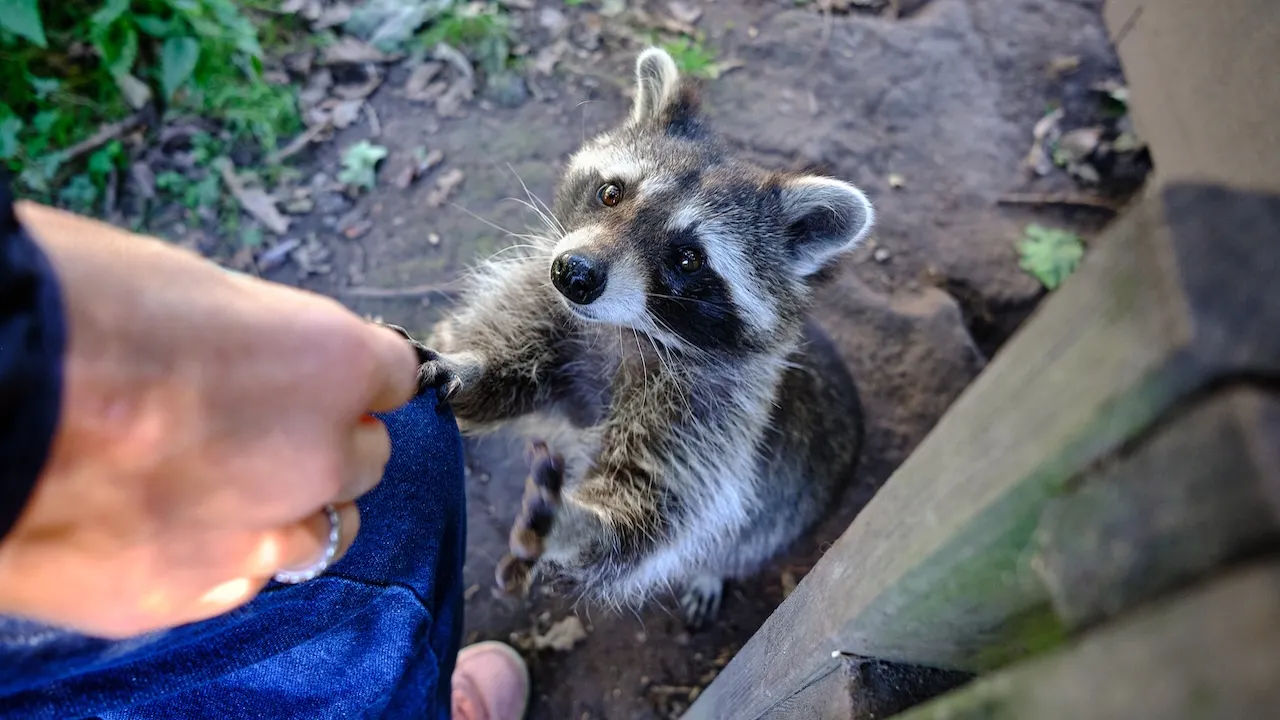CDC warns against the outbreak of events of rising rabies in wild animals throughout the country

Wild animals infected with rabies are becoming an increasing threat to public health, officials warn. According to the Centers for Disease Control and Prevention (CDC), about 75% of Americans are exposed to raccoons, skunks, and foxes – animals that are known to spread the fatal disease to humans.
The latest report from the CDC’s National Rabies Surveillance System shows a 5% increase in wildlife cases of rabies in 2023 compared to the previous year. This increase is concerning, as rabies is a deadly virus that can be transmitted to humans through a bite or scratch from an infected animal.
One recent case that has garnered attention is the death of a recipient of an organ transplant who contracted rabies after surgery. This serves as a stark reminder of the dangers of the disease and the importance of taking preventive measures.
Rabies is a virus that attacks the brain and spinal cord, and can be fatal if not treated promptly. Symptoms of rabies include confusion, agitation, hallucinations, fever, headache, weakness, and pain or numbness at the site of the bite.
While rabies is almost always fatal once symptoms appear, it can be prevented through post-exposure prophylaxis, which involves cleaning the wound and receiving a rabies vaccination. It is crucial for individuals who have been exposed to rabies to seek medical care immediately to prevent the spread of the virus.
The increase in wildlife cases of rabies is believed to be partly due to human activities that have led to the translocation of animals to new areas where rabies was previously rare. Efforts to vaccinate wild animals against rabies have been stepped up in some states to combat the spread of the disease.
Despite the increase in wildlife cases, the CDC reassures that the risk of human rabies remains low, with only a handful of cases reported annually. However, it is important to remain vigilant and take precautions to protect against rabies.
It is essential for individuals to be aware of the risks posed by wild animals and to take necessary precautions to prevent exposure to rabies. By staying informed and following recommended guidelines, we can help reduce the spread of this deadly virus and protect public health. Rabies remains a concern in the wild across the United States, with Hawaii being the only exception, as stated by a CDC spokesperson. While the risk of pets contracting rabies is relatively low, it is not impossible.
According to experts, domestic animals such as dogs and cats can be affected by rabies, although the likelihood is small. The CDC warns that even pets that primarily stay indoors can be at risk if they come into contact with rabid animals that enter our homes or yards without our knowledge.
“The best way to prevent rabies is by avoiding contact with wildlife,” emphasizes the CDC spokesperson. Pets are more likely than humans to interact with wild animals, and they may not be able to communicate if they have been exposed to rabies.
Recent cases in Philadelphia have highlighted the importance of vaccination for pets. In one instance, a lost puppy and two stray cats tested positive for rabies, underscoring the need for preventive measures.
To address this issue, the Nassau County Department of Health is offering free rabies vaccinations for dogs, cats, and ferrets to all residents of the county. This initiative aims to protect the health of pets and prevent the transmission of rabies to humans.
In conclusion, it is crucial for pet owners to ensure that their animals are up to date on vaccinations. By taking proactive steps to safeguard their pets’ health, individuals can also help prevent the spread of rabies within their communities.
For more health-related articles and information, visit www.foxnews.com/Health. Stay informed and stay safe.




